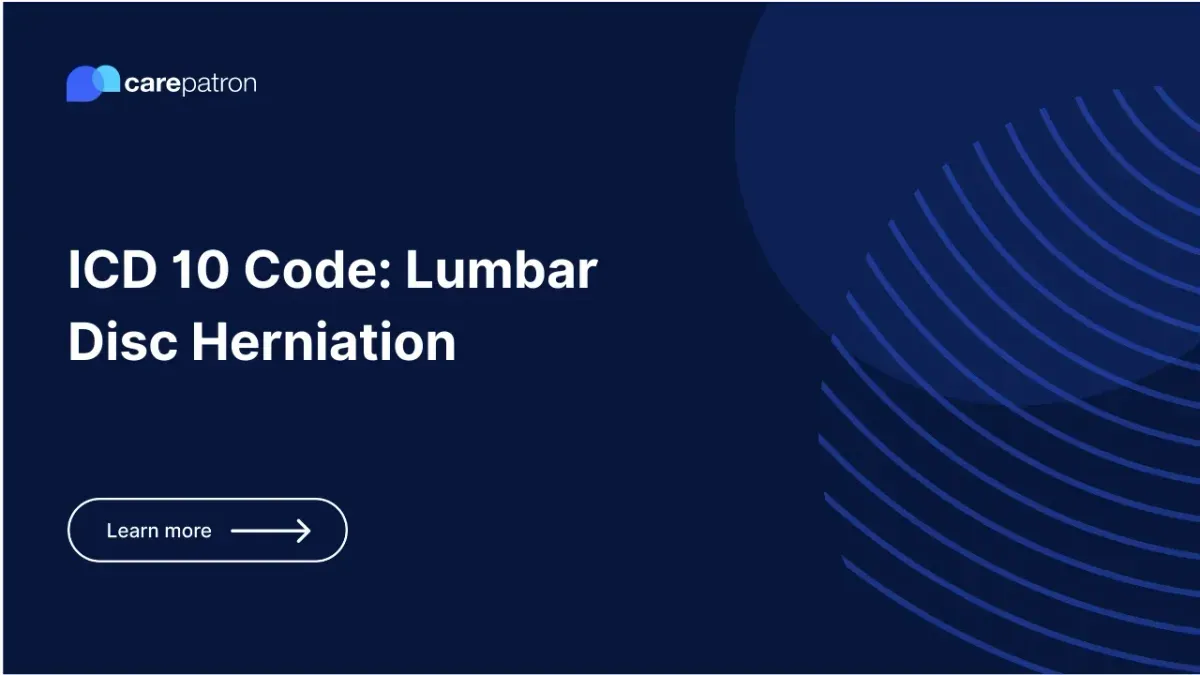
Lumbar Disc Herniation ICD-10-CM Codes
Ensure proper billing and reimbursement while facilitating seamless communication with the appropriate ICD-10 Codes Used for Lumbar Disc Herniation.
Use Code
EHR and practice management software
Get started for free
*No credit card required
Free
$0/usd
Unlimited clients
Telehealth
1GB of storage
Client portal text
Automated billing and online payments
